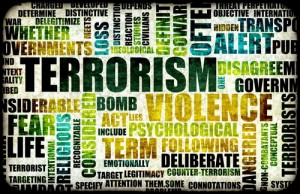NEW YORK – The self-described architect of the Sept. 11, 2001, terror attacks will not be allowed to testify in the terrorism trial of Osama bin Laden’s son-in-law, a federal judge in New York ruled Tuesday.
U.S. District Judge Lewis Kaplan rejected a request by defence lawyers to call Khalid Sheikh Mohammed as a witness at the trial of Sulaiman Abu Ghaith using live, closed-circuit video from Guantanamo Bay, where Mohammed is imprisoned.
Abu Ghaith is the highest-level al-Qaida figure to be tried in the U.S. since the Sept. 11 attacks. His trial is scheduled to resume Wednesday.
The judge told the defence that Mohammed’s testimony would be irrelevant because there was no evidence that Mohammed and Abu Ghaith had ever met or even been in the same country. He also criticized Abu Ghaith’s lawyers for making the request at such a late stage.
Abu Ghaith has pleaded not guilty to charges he conspired to kill Americans and aided al-Qaida as the terror group’s spokesman after the Sept. 11 attacks. The 48-year-old onetime imam at a Kuwaiti mosque was brought to New York from Turkey last year.
The judge’s ruling means the jury also will be barred from considering a 14-page statement Mohammed provided in response to questions from Abu Ghaith’s lawyers.
In the statement, Mohammed said Abu Ghaith had no military role in al-Qaida. The defence has argued that Abu Ghaith had no knowledge of pending al-Qaida attacks when he warned on a widely circulated video after the 2001 attacks that “the storm of airplanes will not abate.”
Mohammed said he never personally spoke to Abu Ghaith about plots to blow up U.S. airplanes with shoe bombs in December 2001, when Mohammed headed al-Qaida’s operations conducted outside of Afghanistan.
He also wrote that he wanted to help Abu Ghaith but was distrustful of the source of the questions posed to him, saying they reminded him of interrogations he underwent after his 2003 capture.
Prosecutors had pointed to a recent written statement by Mohammed that he would refuse to testify in the case as another reason to deny the defence request to call him as a witness. But shortly after the ruling, defence attorney Stanley Cohen sent the judge a letter saying he had received word from Mohammed’s lawyer that Mohammed had now “agreed to be examined without limitation on all relevant topics.”
In a letter late Tuesday, Assistant U.S. Attorney Nicholas Lewin urged the judge to reject Cohen’s latest request, saying nothing the lawyer said made Mohammed’s testimony “material, relevant, exculpatory, non-cumulative or admissible.”
The judge did not immediately rule.
